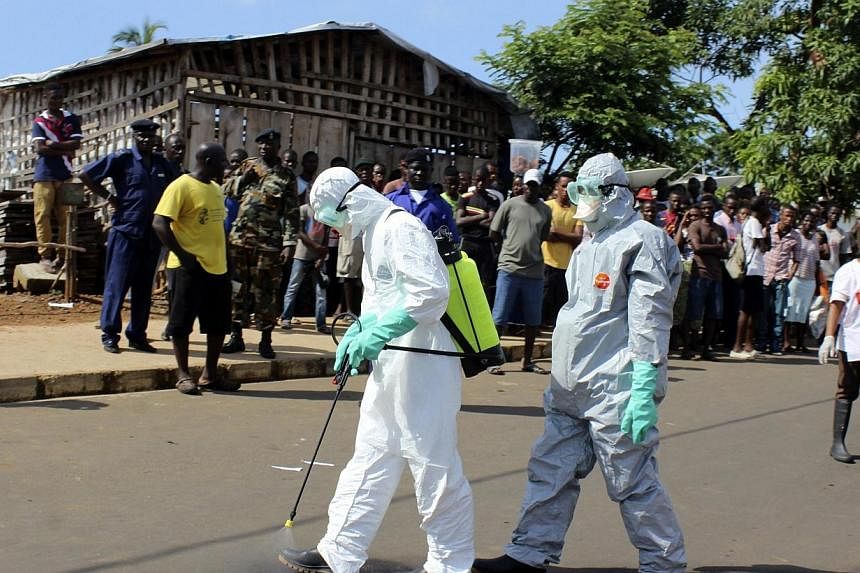People are deeply afraid and doing everything they can to remain safe from Ebola. There are no more parties or big gatherings. Everyone tries to avoid physical contact as much as possible.
These are ways fear has manifested itself in Sierra Leone, one of the worst-hit countries in West Africa, according to British nurse Natalie Mounter who is working in an isolation ward in Freetown, the capital of Sierra Leone.
Recounting her experience on a recent BBC radio programme, she said that there was a level of fear all the time -- not just in the hospital.
"It's all anyone can talk about. You hear about it all the time. And people are frightened. And as a result of that people are coming to the hospital when they have just like one of the small symptoms and they are scared, so they come.
"We completely understand that and we try and treat them how we can. And people in normal society try to do things to protect themselves because of that fear. People are not gathering. We're not allowed to have big gatherings now. We are not allowed to have parties. People are using loads of hygiene all the time. People are not touching each other just because they are scared, everyone is petrified at the moment," she told radio host Andrew Peach in an interview aired on Oct 13.
Is she scared being at the frontline of the battle against Ebola, the host asked.
Definitely, Ms Mounter replied.
"Of course I'm scared... I want to try and remain healthy and try and be vigilant about what I'm doing."
Why did she choose to put herself in a dangerous situation then?
The 32-year-old said she wants contribute to the fight against Ebola.
"In England I was an isolation ward nurse. So that's my background. And I feel like I have the skills to make a difference and to help here. And so it makes sense to come help if I can."
She quit her job at Britain's Basingstoke hospital last month and travelled to Sierra Leone last week as part of a partnership between King's College Hospital Trust in London and Connaught Hospital, in Freetown.
The nurse told community newspaper Basingstoke Gazette in an article published last month that her trip to Sierra Leone could last at least three months.
"I am in a position where I can get up and leave - I do not have children or a mortgage or things keeping me here so it makes sense to go.
She told BBC that her friends and families back in UK have been very supportive of her decision to travel to Sierra Leone.
Even though she had seen patients losing their battle during her stint as an isolation ward nurse treating patients with infections such as MRSA, it was heart-wrenching for her to see Ebola patients die --on a regular basis- from the disease.
"It is very hard to handle but you just have to kind of carry on and keep going and just do the best you can in a very difficult situation," she told BBC.
She adds that she has to abide by strict protocols during her work to prevent being infected by Ebola patients. She also has take precautions when she is off duty.
"On a personal level, when I'm kind of not at the hospital, when I'm at home or when I'm out and about, you're just more careful than normal...we try not to touch our own faces to stop anything coming into our mouths or eyes, wash my hands all the time, I just shower several times a day, use alcohol hand gel everywhere I go."
When asked for her views on the situation on the ground, she told BBC World Service that "things are probably going to get worse before they get better".
"So we just have to keep trying and keep going and I know that more help is being sent out and things are getting better, so we can only hope that helps us turn the corner and helps us reel things in," she told the broadcaster.


